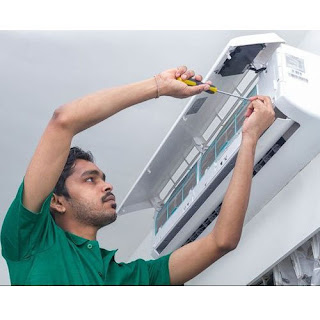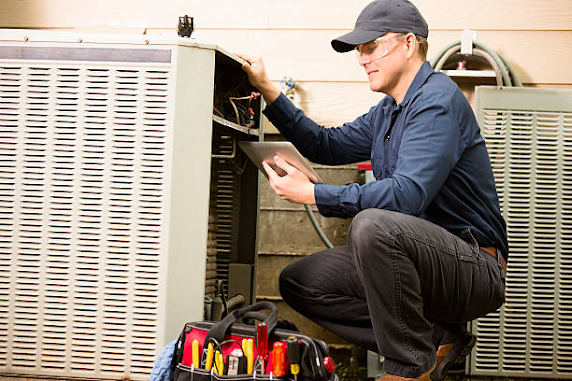11 most common air conditioning problems and how to fix them
If you're like most homeowners, your air conditioning system is one of the most important pieces of equipment in your home. And just like any other piece of equipment, it can sometimes break down. If that happens, don't panic! In this blog post, we'll provide a list of 11 common air conditioning problems and how to fix them. So if your AC starts acting up, don't hesitate to give us a call. We'll be happy to help!
AC's can be an expensive thing to maintain, but if you know some of the common air conditioning problems and what they mean, then you can fix them on your own. Here are 11 of the most common AC problems and how to go about fixing them.
If you notice that your AC is not cooling as well as it was at the start of summer, then it may be time to change the air filters. Dirty air filters block airflow and reduce the efficiency of your unit's compressor and condenser coils. This means that you should change it as often as necessary or follow your manufacturer's guidelines for filter replacement. You can find out where the filter is by consulting your owner's manual.
If the fan is running, but you notice that your unit isn't cooling effectively, then it means that there may be a problem with your compressor. Your compressor is usually located in the outdoor unit and requires professional repair.

This usually occurs when you see water dripping from an external part of the system, such as the fan motor or compressor. You should immediately turn off your unit and contact a professional.
A clicking noise means that your condenser is wearing out, which means that it is time for you to replace & repair your air conditioner. However, if the clicking only occurs when there's less load on your air conditioning system (such as at night), then it's probably normal.
A loud sound when your system turns on means that there may be an obstruction somewhere in the unit. You should immediately turn off your AC and use a long pole to try to dislodge whatever is blocking it (such as leaves, dirt, or even insects if they've built a nest). If you still hear the noise, then you should call a professional to come take a look at it.
A high pitched squealing when your AC is running means that the bearings in your outdoor fan are bad and need to be replaced. However, if you notice the same sound when there's no cooling, then it probably means that something in your compressor needs to be replaced.
A rattling sound means that there is dirt or debris in your unit that needs to be removed before it causes permanent damage to the coils and fan blades. You should manually remove as much of this as you can, but if it's not cleared within a few weeks then you may need professional help.
A clicking sound coming from your compressor means that the valves or pistons are stuck and need to be repaired. You should contact a professional as soon as these noises start occurring, since they may cause permanent damage if not fixed right away.
If you notice water formation on your unit's exterior then it means that there is too much humidity in the air. This often occurs at night, so you should check to see if your AC's compressor is running more than usual which may mean that it's working overtime to cool your home. You may need to decrease the humidity levels or shut off your unit for a few hours until the humidity levels are low enough.

Oftentimes when condensation builds up in the outdoor unit, it may drip down onto the ground. However, if it is dripping inside your home or by windows and doors, then you should shut off your air conditioning system immediately and contact a professional to check for leaks in your line set.
This means that there is too much humidity in the air and your unit is trying to cool it by using its excess water. Shut off your AC and decrease the humidity levels in the room to prevent any additional condensation from forming.
You should always check your owner's manual before performing any kind of maintenance on your air conditioning system because different units have different parts than others, as well as different maintenance needs.
If your AC is making a rattling sound, then there is probably dirt or debris in the unit that needs to be removed before they cause permanent damage to the coils and fan blades. You should manually remove as much of this as you can, but if it's not cleared within a few weeks then you may need professional help.
A clicking sound coming from your compressor means that the valves or pistons are stuck and need to be repaired. You should contact a professional as soon as these noises start occurring, since they may cause permanent damage if not fixed right away.
When you see water dripping from an external part of the air conditioning system, it means that there is too much humidity in the air. This often occurs at night, so you should check to see if your AC's compressor is running more than usual which may mean that it's working overtime to cool your home. You may need to decrease the humidity levels or shut off your unit for a few hours until the humidity levels are low enough.
If you notice water formation on your unit's exterior then it means that there is too much humidity in the air. This often happens at night, so you should check to see if your AC's compressor is running more than usual which may mean that it's working overtime to cool your home. You may need to decrease the humidity levels or shut off your unit for a few hours until the humidity levels are low enough.
Conclusion: If you are experiencing any of the common air conditioning problems we’ve outlined, don’t hesitate to contact us EZ Eletric. Our team of experts can help diagnose and fix the issue in no time. We want your home or office to be comfortable all year long, so please don’t suffer in silence – reach out today!
Author Bio:- Robert Wong
Robot is a marketing manager at EZ Eletric. He has an interest in writing articles related to HVAC installation, maintenance, and repairs. The HVAC system has made our life convenient regardless of the climatic changes. Read Robot’s articles to know step-by-step installation guide for ceiling fan, smoke detector, lighting and electrical appliances in California as well as how to repair them in case of malfunctioning or breakdown.


.jpg)
Comments
Post a Comment